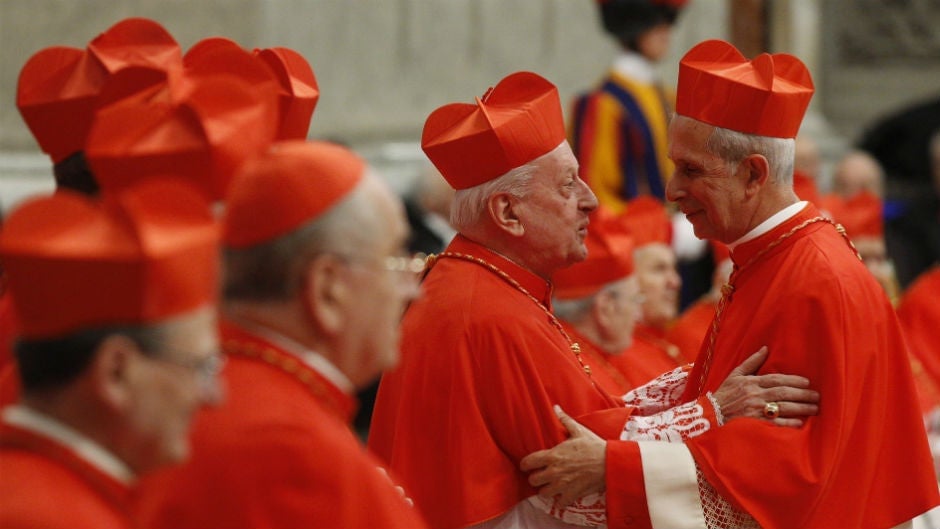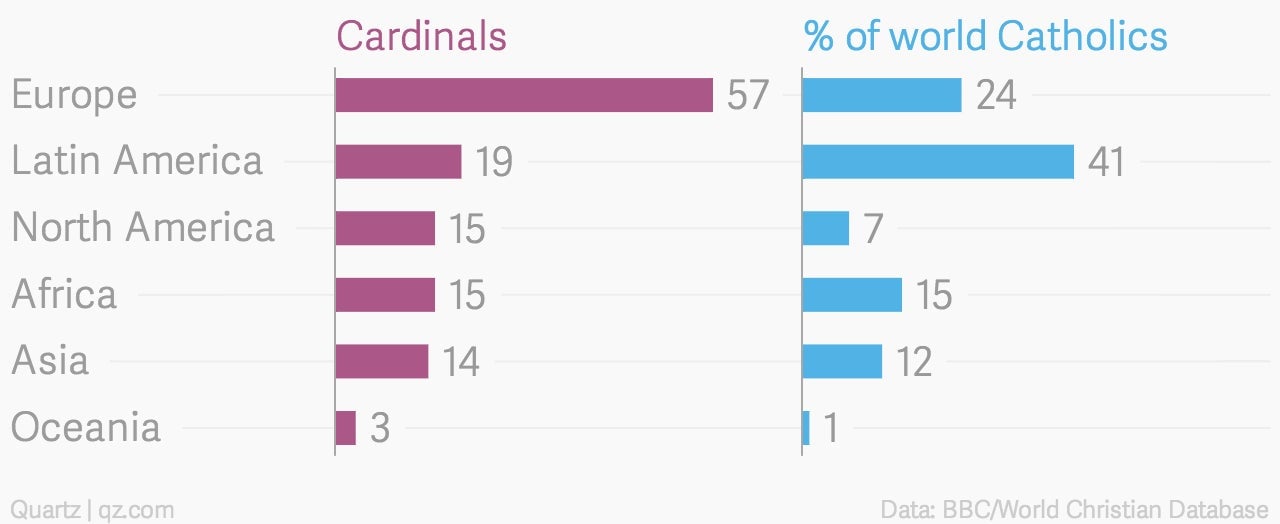Pope Francis’ historic step to diversify the Vatican’s regionally skewed leadership
Pope Francis has shaken things up in the Vatican once again, pushing for greater regional diversity among the highest echelons of the Catholic church. His 20 nominees to the post of cardinal, announced Sunday, will come from 18 countries, many of them developing nations such as Tonga, Cape Verde, and Myanmar.


Pope Francis has shaken things up in the Vatican once again, pushing for greater regional diversity among the highest echelons of the Catholic church. His 20 nominees to the post of cardinal, announced Sunday, will come from 18 countries, many of them developing nations such as Tonga, Cape Verde, and Myanmar.
Fifteen of the so-called “Princes of the Church” will become part of the College of Cardinals, the body that will elect the new pontiff when the time comes. (Cardinals must be under the age of 80 to be eligible.) Five of the men, who will be sworn in on Feb. 14, are from Europe; there are three each from Latin America and Asia, two from Africa, and two from Oceania.
Vatican observer John Allen called the move to change up the demography of the College arguably “the most revolutionary act of all” in the pope’s already game-changing tenure. Even with the pope’s efforts, Europe will remain massively overrepresented in the College, and Latin America, which has the largest concentration of Catholics in the world, underrepresented.

Pope Francis, himself from Argentina, has shown his commitment to uprooting the stale, Italian-dominated Vatican establishment, recently calling out church officials for their “spiritual Alzheimer’s.”
One way is to add perspectives from the southern hemisphere, a move that Francis started with last year’s nominations to the College. This year, the pope skipped over the United States for the second time in a row.
Even the nominees from Europe are a snub to the traditional centers of power. While omitting Venice, for instance, the pope chose a Sicilian archbishop as one of his new Italian cardinals. And this choice, the Wall Street Journal reports, also shows the pope’s concern for the world’s poor—as the archbishop from Agrigento, on the southern coast of Sicily, Francesco Montenegro leads the bishops’ effort to deal with the plight of immigrants from the developing world.
The pope also nominated bishops from areas ravaged by violence, such as Morelia in Mexico, and from places where Catholics are among the minority.
According to Allen, geography was the determining factor. He notes that none of the pope’s choices have a “clear reputation as a doctrinal or political conservative,” though this does not necessarily mean a radical shift to the left in political terms. “The cardinals were not selected on the basis of a clear mandate or policy agenda, and they don’t all belong to the same ideological bloc,” Allen says.